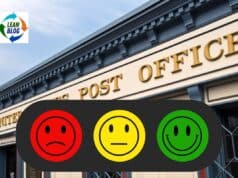Worldwide, airlines are expected to lose $4 billion in 2006, despite continuing growth in air travel. Air traffic was up 7.5% in 2005 – further increases in the range of 5-6% are projected for 2006.
From the article: “Industry losses reached $6 billion in 2005, in keeping with predictions by IATA in December. That compared with $4.2 billion of losses in 2004 and $7.6 billion the year before. A steady return to profitability in the airline industry has been hampered by a surge in prices of jet fuel to record high levels until they eased slightly in the final months of the year.”
Why the blame on fuel prices???
Rising fuel prices must be acknowledged, but so should efforts or improvements made to shed cost that can be controlled by the various carriers. Sure we now have e-tickets and self check-in that pass work onto the consumer, but it is clear from continuing losses that these have not gone far enough.
If Profit = Market Price – Cost (the lean view of the value equation as highlighted by Mark Graban in a previous post), it follows that there are only 2 ways to improve profits: reduce controllable costs, and add value. Air travel is a saturated industry and market prices for fares are respectively low. Just look at the number of Internet based services all geared to finding the consumer the cheapest rates. While airlines would certainly like to be able to charge more for fares, the competitive landscape dictates that this is not possible.
Maybe, just maybe an external focus on the customer and an internal focus on the value stream would identify additional opportunities to improve flow and eliminate waste, improving cost and adding value. There may also be opportunities for airlines to work together on common processes and leverage each others ideas and resources for improvement. Common processes would include as an example, all activities for handling and moving passengers and baggage at airports.
Please scroll down (or click) to post a comment. Connect with me on LinkedIn.
Let’s build a culture of continuous improvement and psychological safety—together. If you're a leader aiming for lasting change (not just more projects), I help organizations:
- Engage people at all levels in sustainable improvement
- Shift from fear of mistakes to learning from them
- Apply Lean thinking in practical, people-centered ways
Interested in coaching or a keynote talk? Let’s talk.
Join me for a Lean Healthcare Accelerator Trip to Japan! Learn More










To me, blaming a loss on fuel prices is the equivalent of admitting lack of active management to hedge one’s losses – literally.
The source I read estimated that Southwest hedged 85% of their fuel needs in 2005 while American hedged 6% and Delta hedged 0%. The kicker is that Southwest technically carried an operational loss and can “blame” it’s profit on soaring jet fuel prices!
Now, I haven’t verified any of this data for myself, but it does make for some intersting comparison. For once I’d like to hear a management team say, “We blame this year’s loss on our own poor decisions.”
Reading over my comment, I realize that I have recently heard a management team take full responsibility for company losses. Warren Buffett, in several of his annual letters to shareholders of Berkshire Hathaway, has explicitly owned up to his mistakes. No wonder that he has also created massive wealth for shareholders by learning from those mistakes and improving.
Does anyone know if Buffet’s companies have institutionalized process improvement, lean or otherwise?
Comments are closed.